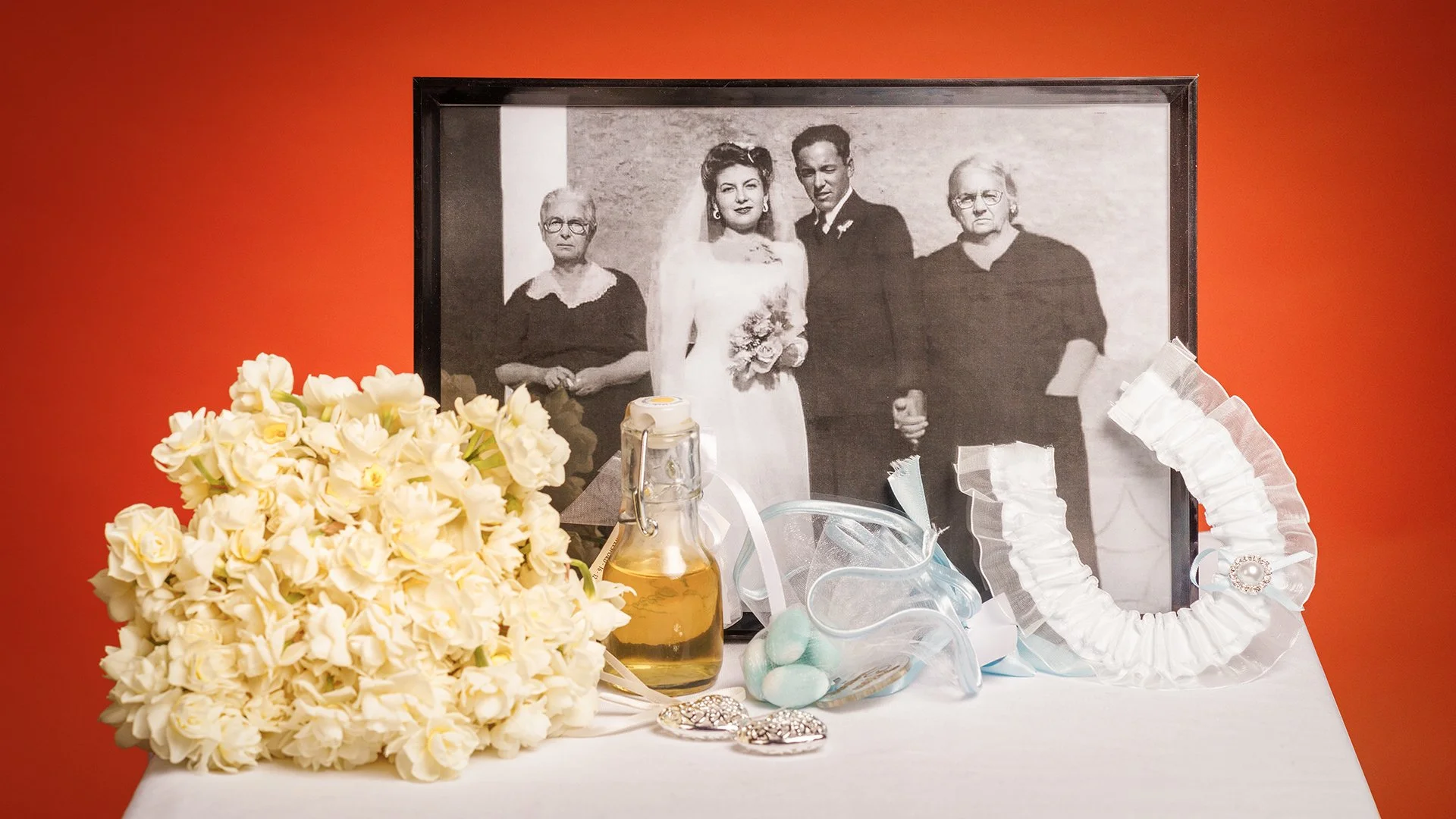REVIEW: Re-voicing the Italo-Australian community in An Italian Wedding
An Italian Wedding is a headphone verbatim show co-created by Fabio Motta and Kristine Landon-Smith. Presented as part of La Mama’s Festival of Mother Tongues from 21 - 23 November.
Language: Italian, with English open captions
Directed by Kristine Landon-Smith
Review by Monica Sestito
Image by Darren Gill
What does it mean to give voice to the varied but interwoven stories of the Italian diaspora, particularly its older generations? This is the question to which An Italian Wedding offers a poignant and self-reflective response, staging a sort of embodied mixtape of anecdotes on love and family from Italian community members.
The production, performed in the historic CO.AS.IT building as a part of La Mama Theatre’s inaugural Festival of Mother Tongues, is a co-creation of Kristine Landon-Smith and Fabio Motta, and devised within the framework of verbatim theatre. This means that the ‘script’ of An Italian Wedding is directly drawn from collated testimony, situating the production at the crossroads of applied theatre, oral history and cultural ventriloquism.
Motta and a team of researchers conducted interviews with Italian community members in Melbourne, Sydney and Italy around the theme of marriage, before selecting and sequencing snippets of these interviews to form a playlist that Motta, Laura Colaianni and Luca Romani perform live on stage. They do so while listening to the curated playlist through ever-visible headphones.
The co-creators emphasise in a note in the program that their limited aim is “only to share the interviewees’ voices and stories…as they did with us.” Yet the impact of An Italian Wedding largely derives from the way that the performers interpret and mediate these voices, and, in the process, reveal the deep pathos and humour that underscores the most mundane memories and ways of recounting them.
We become privy to the stories of the men who audaciously admit to hating Italian weddings due to the unspoken cultural rules prescribing that guests fork out financially for newly-weds; the women who lament the intense social scrutiny they faced as new wives, pressured to open their houses to all and hence themselves to judgement; and the men and women who ponder what could have been if they hadn’t married so young.
These anecdotes coalesce to astutely convey the web of cultural expectations and community relations cohered around marriages. But they come alive thanks to the ways in which Motta, Colaianni and Romani moderate their pitch, intonation, accent, rhythm and gestures, masterfully capturing the eccentricities and life-worlds of the individuals and couples they embody.
The set design is paired down to a bare minimum except for the presence of several chairs, which the performers jump between and move around on stage to signal shifts in the flow of testimonies and the relationships between characters embodied. The effect of this is a heightened intimacy and attention to the voices embodied on stage. In An Italian Wedding, active listening by performers and audience members alike is the essential precondition for inter- and cross-cultural exchange.
This is a deeply humanistic, humorous portrait of the Italian diaspora that revoices its subjects with dignity and, in the process, charts a path for theatre to act as a powerful vehicle of and catalyst for cultural memory.
This review is part of MAV’s initiative to foster culturally responsive theatre criticism, amplifying diverse voices and perspectives in the arts. By inviting writers, storytellers and artists to review the works of fellow creatives through the lens of shared lived, or cultural experiences, we aim to highlight the importance of theatre reviews that challenge dominant narratives and provide deeper, culturally grounded perspectives.

